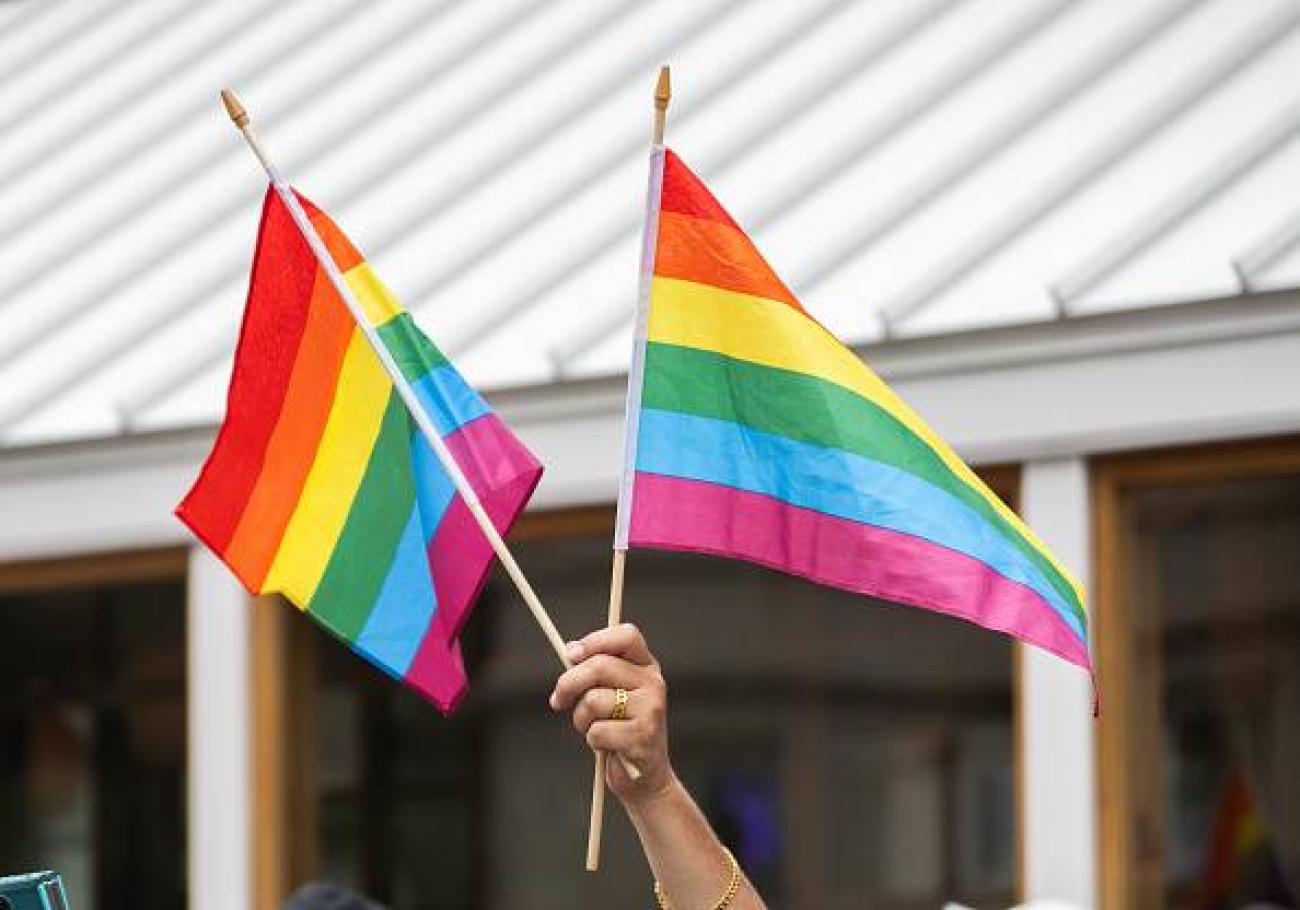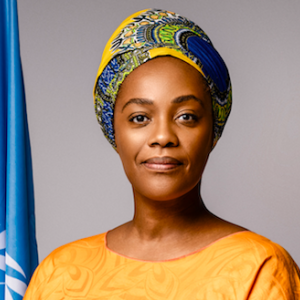Diversity is a source of strength, rather than a cause of division

South Africa decriminalised and legalised same-sex marriage in 2006, the first country in Africa to do so. This legal precedent marked a significant step.South
South Africans living under apartheid were governed by the Immorality Act of 1955, which prohibited relations between people of different racial groups and extended to acts of homosexuality in public spaces.
A highly publicised police raid one weekend in January 1967, in the Johannesburg suburb of Forest Town, resulted in the arrest of nine men for masquerading as women and participating in what was termed “indecent activity”. This incident prompted the amendment of the Act in 1968, further criminalising homosexuality.
Fast forward to 2024, and there is much to celebrate, not just in South Africa but around the world, including in neighbouring Namibia, which decriminalised same-sex relations earlier this month.
UNAids data shows that 124 countries do not penalise same-sex relations, the highest number to date. A number of countries have recently scrapped punitive anti-LGBTQ+ laws, often remnants of colonial rule. Since 2019, Botswana; Gabon; Angola; Bhutan; Antigua and Barbuda; Barbados; Singapore; Saint Kitts and Nevis; Cook Islands; Mauritius and Dominica have repealed laws that criminalise LGBTQ+ people.
However, UNAids executive director Winnie Byanyima fears the progress made is under threat adding that “the human rights of the LGBTQ+ community are threatened by a globally coordinated and well-funded extremist anti-rights network who are spending millions promoting hate and social division and are proposing ever more draconian laws to punish LGBTQ+ people”.
“Attacks on LGBTQ+ people violate human rights and undermine public health.”
According to UNAids 2022 data, about 310 000 people identify as men who have sex with men and close to 180 000 people identify as transgender in South Africa. Unfortunately, due to pervasive stigma and discrimination toward the LGBTIQ+ community, the data is mostly obtained from people who choose to self-identify and disclose. In other words, stigma, discrimination, acts of murder and corrective rape against LGBTI+ people, remain a barrier to disclosure.
Data from Ritshidze’s latest Community-Led Monitoring report State of Healthcare for Key Populations, February 2024, which collected data from interviews with 13 832 people across 14 healthcare facilities nationally, revealed people who are queer or trans, use drugs or engage in sex work, often face uncaring, disrespectful, cruel and abusive treatment at public health facilities.
Very few people reported that facility staff were always friendly: only 35% of trans people, 33% of gay, bisexual and other men who have sex with men, 26% of sex workers and 17% of people who use drugs.
Numerous people said they were treated worse, or feared they would be, when staff found out they were a member of a key population. Equally concerning is that confidentiality violations remain common — 57% of gay, bisexual and men who have sex with men; 61% of trans people; 65% of sex workers and 74% of people who use drugs did not think privacy was respected.
Discrimination is not only evidenced at some health facilities.
A survey on The Lived Experience of the LGBT+ Community in South Africa in 2020, by the Inclusive Society Institute, found that, in terms of social cohesion and integration, the majority (72%) of the LGBT+ community experienced some form of discrimination in terms of social integration.
Of those who confirmed having experienced discrimination, 69% experienced it in the field of education and youth development; 65% in relation to safety, security and psychosocial services; 56% in job creation, employment and seeking asylum; 48% in accessing healthcare and 31% and 22% in accessing essential services and housing, respectively.
According to the South African Department of Justice and Correctional Services, in June 2021, 42 hate crimes were perpetrated against members of the LGBTIQ+ community across the country, of which 30 cases were related to murder and 12 to rape. Many of these cases remain open.
In a UNAids podcast with South African transgender activist and filmmaker Zoey Black, she agrees this is true and details her experience of being assaulted in a public space because of her transgender status and “not presenting as feminine enough”.
Following her disclosure in 2016, she has severed friendships and family relations because of non-acceptance of her transgender status. She is not alone. This abuse, in all its shapes and forms, coupled with isolation, resonates with many in the LGBTIQ+ community, often resulting in mental health challenges, exacerbating the physical struggles.
The 2020 Inclusive Society Institute survey confirms this. In it, 24% of respondents indicated that they were suffering from some form of medical condition and 41% registered the presence of a mental health condition. Mental health issues appear to be a challenge for 53% of respondents under the age of 26. The institute believes that this requires urgent attention, as it could lead to a potential mental health crisis.
In the UNAids podcast, Black adds that it was isolation and lack of relatable content that prompted her to start a YouTube channel focusing on her journey and struggle with identity, hormone replacement therapy, transgender rights and other issues affecting her community. She adds that Africans need African content on transgender rights because the dynamics of inclusivity and acceptance differ from those of her international LGBTIQ+ friends.
This is why initiatives such as Pride Month matter — they afford us an opportunity to shine a spotlight on, and raise awareness of, the challenges for equality and inclusivity for all individuals, regardless of how they choose to identify.
It is evident that today, more than ever, the LGBTIQ+ community needs our solidarity. Despite significant legal advancements, such as the legalisation of same-sex marriage and protections against discrimination, LGBTQ+ individuals still face high levels of violence, stigma and marginalisation. Hate crimes, corrective rape and social ostracisation remain persistent threats, particularly for transgender and gender non-conforming individuals.
By shining a spotlight on these issues during Pride Month, June, we not only amplified the voices of those who have been silenced but also mobilised support for meaningful and impactful change. It is a time to advocate for comprehensive anti-discrimination laws, inclusive education and accessible healthcare services that cater to the specific needs of LGBTQ+ individuals. It is about fostering a culture of empathy and understanding, where diversity is celebrated and embraced as a source of strength, rather than a cause of division.
We salute the work of our collaborating partners such as Access Chapter 2, WITS RHI, the Aurum Institute, OUT — LGBT Wellbeing and others who have specialised clinics and healthcare facilities to cater to the needs of the LGBTIQ+ community, providing the community with a space to be free in who they choose to be.
However, we need to step up the momentum to ensure that all public spaces are safe spaces and health facilities can provide these services free from stigma and discrimination and with tolerance, dignity and respect.
As Black says in the podcast, “it’s not what we do only in Pride Month that matters but how we follow through beyond pride that will influence consistent and impactful change,” because, ultimately, we are all advocating the same thing — that health rights are human rights.
As the UNAids executive director so aptly put it, it is only by insisting on acceptance, and rejecting criminalisation, decriminalisation and stigmatisation, that we can ensure a fairer, safer future for all. We are all invited to be allies.
Eva Kiwango is the country director for UNAids South Africa.
First published by Mail & Guardian.
Written by






